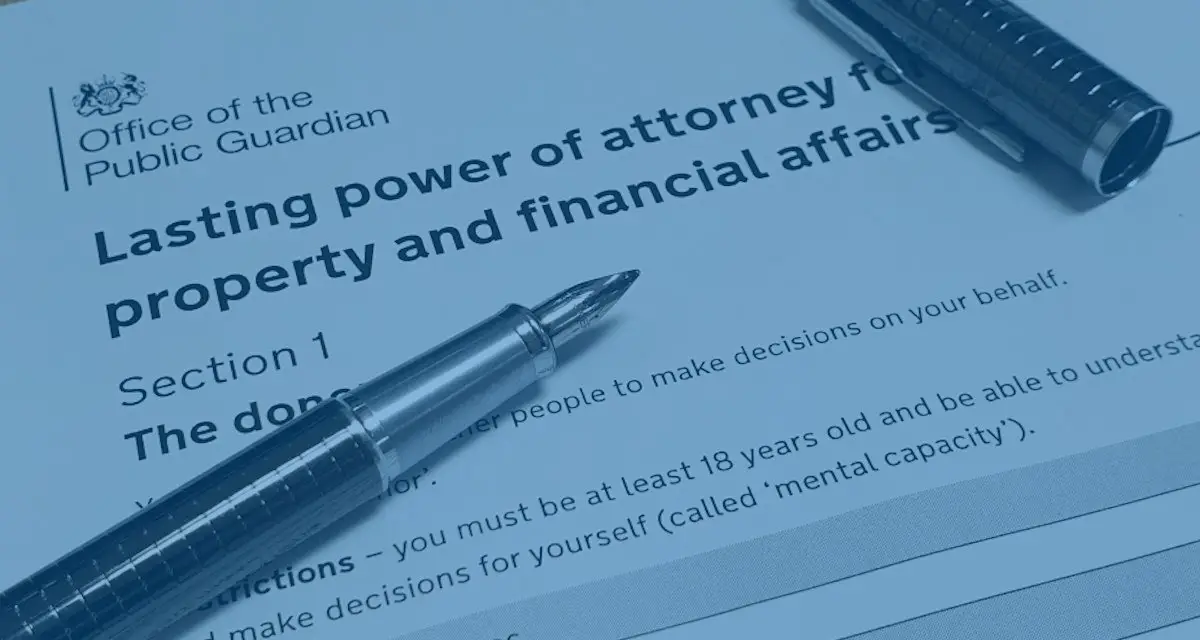A Lasting Power of Attorney (LPA) is a legal document in the UK that allows an individual (known as the donor) to appoint one or more people (known as attorneys) to make decisions on their behalf. This is particularly important for planning ahead, ensuring that your preferences are honored if you lose the ability to make decisions for yourself. Below is a detailed guide to understanding, setting up, and using an LPA.
1. What is a Lasting Power of Attorney (LPA)?
A Lasting Power of Attorney is a legally binding document that grants trusted individuals the authority to manage specific aspects of your life, such as financial matters or healthcare decisions, should you become unable to do so. It provides peace of mind for both the donor and their family by ensuring that decisions are made in the donor’s best interests.
2. Types of Lasting Power of Attorney
There are two main types of LPAs in the UK:
A. Property and Financial Affairs LPA
- Purpose:
- Manages financial assets such as bank accounts, property, and investments.
- Covers activities like paying bills, collecting pensions, or selling property.
- Usage:
- Can be used immediately after registration, even while the donor has mental capacity, if specified in the document.
B. Health and Welfare LPA
- Purpose:
- Authorizes attorneys to make decisions about the donor’s healthcare, daily care routines, and medical treatments.
- Includes the power to decide on life-sustaining treatments if explicitly permitted by the donor.
- Usage:
- Only comes into effect if the donor loses mental capacity.
3. Why Create a Lasting Power of Attorney?
Creating an LPA is essential for several reasons:
- Planning for the Future:
- Ensures your affairs are managed according to your wishes if you lose mental capacity due to illness or injury.
- Avoiding Court Delays:
- Without an LPA, family members may need to apply for a deputyship through the Court of Protection, which is costly and time-consuming.
- Providing Clarity:
- Clearly outlines your preferences, avoiding confusion or disputes among family members.
4. Who Can Be an Attorney?
You can choose one or more people to act as your attorney(s). Consider the following:
- Eligibility:
- Attorneys must be over 18 years old and mentally capable.
- For Property and Financial Affairs LPA, they must not be bankrupt.
- Trustworthiness:
- Select someone you trust to act in your best interests, such as a family member, friend, or professional solicitor.
- Skills:
- Attorneys should have the necessary skills to manage your affairs effectively.
5. How to Set Up a Lasting Power of Attorney
The process of setting up an LPA involves several steps:
Step 1: Decide on the Type of LPA
- Determine whether you need a Property and Financial Affairs LPA, a Health and Welfare LPA, or both.
Step 2: Choose Attorneys
- Choose one or more attorneys and decide how they will act:
- Jointly: All attorneys must agree on every decision.
- Jointly and Severally: Attorneys can act independently or together.
Step 3: Complete the LPA Forms
- Download the necessary forms from gov.uk.
- Include details such as:
- The donor’s personal information.
- The attorneys’ details and their scope of authority.
- Any preferences or restrictions on how attorneys should act.
Step 4: Nominate a Certificate Provider
- A certificate provider ensures the donor understands the LPA and is not under undue influence.
- They can be a professional (e.g., GP or solicitor) or someone who has known the donor for at least two years.
Step 5: Register the LPA
- Send the completed forms to the Office of the Public Guardian (OPG) along with the registration fee of £82 per LPA.
- Registration takes approximately 8-10 weeks.
6. Key Features of a Lasting Power of Attorney
| Aspect | Details |
|---|---|
| Scope of Authority | Can be tailored to specific decisions or grant broad authority. |
| Mental Capacity | Comes into effect if the donor loses capacity (Health and Welfare LPA) or immediately if specified (Property and Financial Affairs LPA). |
| Revocation | The donor can revoke the LPA at any time while they have mental capacity. |
| Safeguards | Registration and the certificate provider ensure the document is created with consent. |
7. Costs and Financial Considerations
- Registration Fee:
- £82 per LPA (waivers or reductions available for low-income individuals).
- Legal Assistance:
- Optional solicitor fees for advice or drafting (typically £200-£500 per LPA).
8. Common Uses of an LPA
| Type | Common Scenarios |
|---|---|
| Property and Financial Affairs LPA | Managing property sales, accessing bank accounts, paying bills, and handling investments. |
| Health and Welfare LPA | Deciding on care home placement, medical treatments, and daily routines. |

